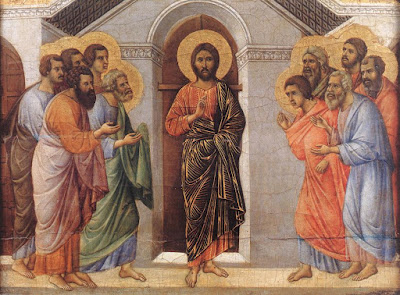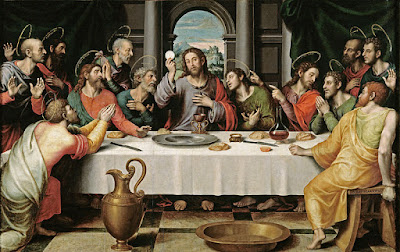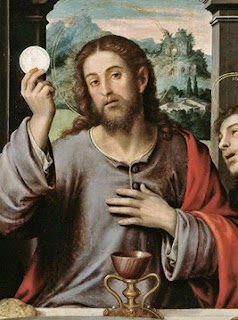Homily for the 2nd Sunday of Easter (Divine Mercy Sunday), April 23, 2017, Year A

Appearence Behind Locked Doors , Duccio di Buoninsegna, c. 1308. Fr. Charles Irvin Senior Priest Diocese of Lansing ( Click here for today’s readings ) At the Last Supper, shortly before He suffered and died on the Cross, Jesus gave us the stupendous gift of His Body and Blood, now really and truly present to us in the Eucharist. He gave us this gift at the very core of His redemptive sacrifice for us. Then, when He rose from the dead, His very first act was breathe out Holy Spirit upon His apostles and into His Church. “Peace be with you,” He said to them. “As the Father has sent me, so I send you.” And when He had said this, He breathed on them and said to them: “Receive the Holy Spirit.” What does that mean for us? Our Church leads us now into what we might call “The time of the handing over of the Spirit.” To examine the significance of that time let’s return to God’s first breathing forth His Holy Spirit, that life-giving creative act of God that we find in the

